CNC tool head
CNC11
The accessible tool-head
With the CNC11 tool head, you can machine a wide variety of parts. It offers the possibility of machining soft materials such as polymers, wood and derivatives.

Compact
The CNC11 is an ultra ergonomic tool head that meets your exceptional machining needs.

Complementary
Combine the CNC11 with the 3DF02 to produce accurate, low-cost hybrid parts. Machine the functional surfaces of 3D printed parts and achieve parts with smooth surface finishes and precise dimensional tolerances.
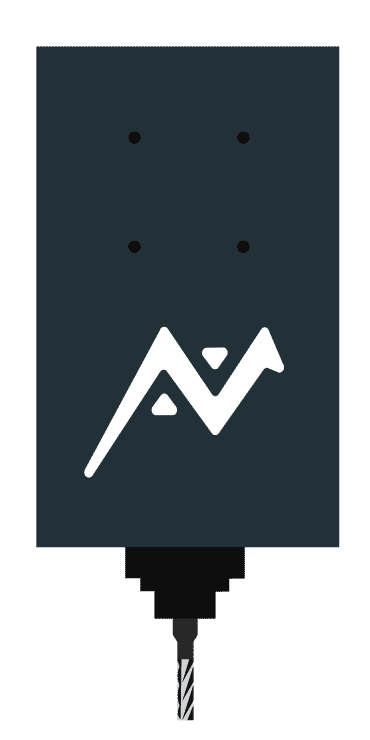
Precise parts with the CNC11
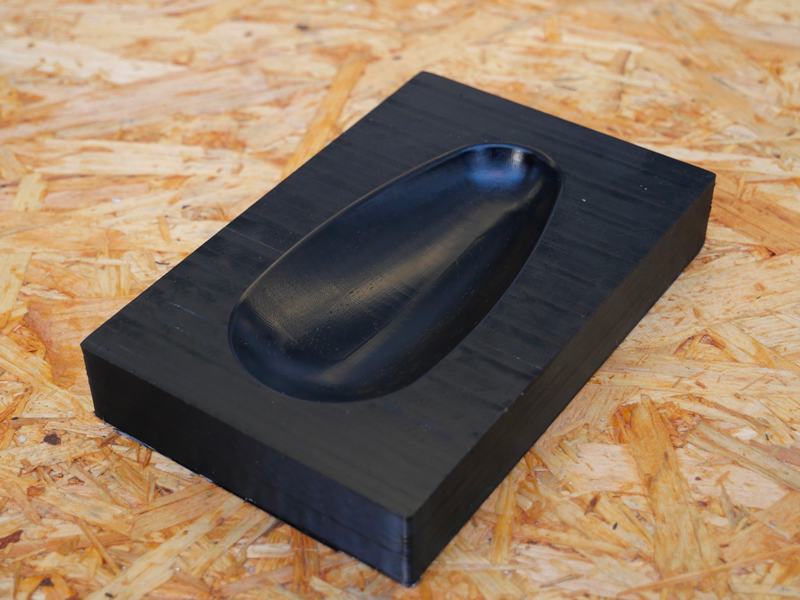
3D printed and machined part
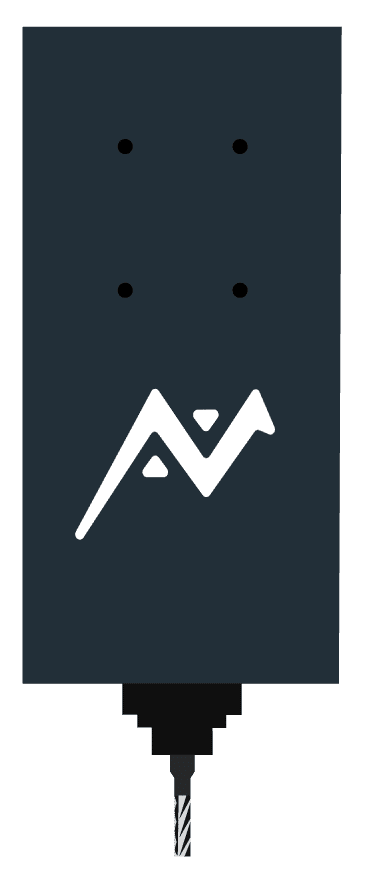
CNC22
The high-performance tool head
Step up a gear with the CNC22 tool head. A robust and powerful tool head for machining tough parts.

Quick tool changer
Reduce your cutting tool changeover times with HSK tapers. Quickly change machining phases thanks to automatic tool length measurements stored directly in N-play.

From metal to composites
Machine metals such as aluminum, brass or copper for long-lasting parts.
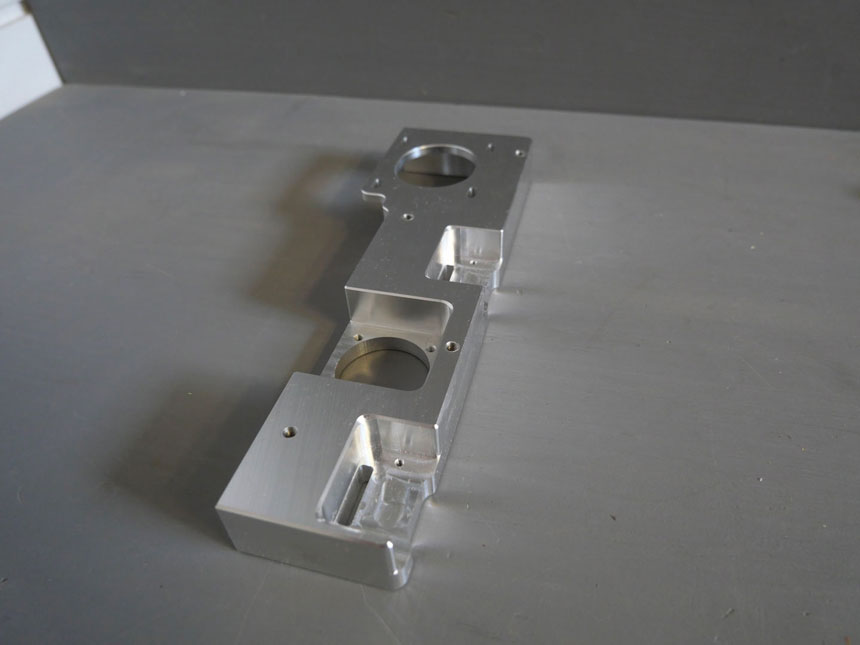
Production tooling
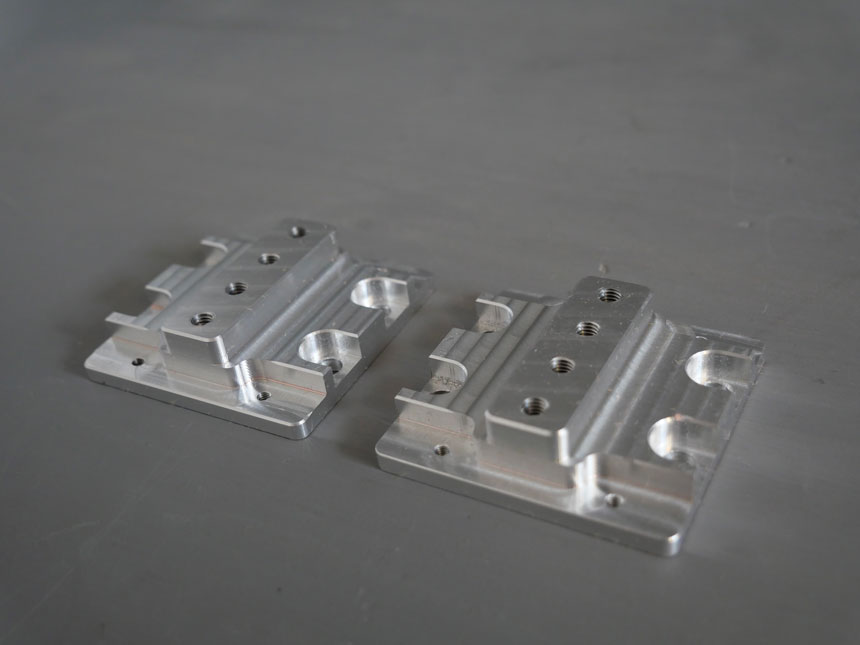
Structural holding parts
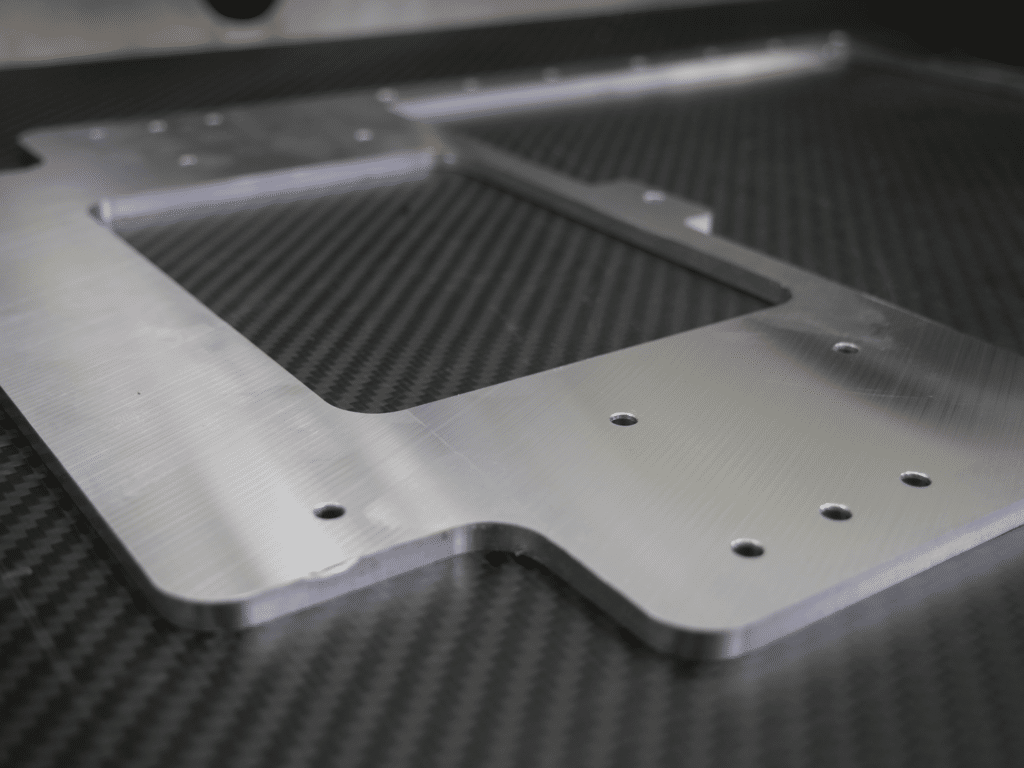
Configurations designed for intensive machining

Micro-lubrication system
Vacuum system for shavings
Cone tool changer
Water cooling of the spindle
Precise and robust parts
With machining in your shop, produce precise parts. The CNC22 allows you to produce a wide variety of metals for your prototypes, tooling and final parts.
Features
Tool heads for your applications
Compatible materials
the process used
CNC Machining
3 axis / 3 continuous axis
CNC is used to work materials used in industry such as aluminium and to obtain durable and precise finished parts.
This list is not exhaustive.
Uses: tooling, structural components, aerospace, automotive
Advantages: mechanical, thermal and chemical resistance
Uses: structural parts, decoration
Advantages: renewable, ecological, aesthetic
Uses: structural parts, competitive sports, aeronautics, automotive,
Advantages: light, mechanical and thermal resistance, electrical and thermal conductor
Uses: shipbuilding, electronics, electrical, construction,
Advantages: electrical and thermal conductivity, corrosion resistance
Uses: depending on the material
Advantages: 3D printed parts with precise tolerances and correct surface finishes
Uses: jewellery, watches, locksmiths
Advantages: corrosion resistant, malleable, ductile
Uses: packaging, protection, storage blocks
Advantages: lightweight, high elastic deformation, shock absorbing
Uses: nuclear, aerospace, automotive, medical
Advantages: excellent mechanical, chemical and high temperature resistance, fire resistance
Uses: general engineering, machining martyr, insulator, gear wheel
Advantages: impact, tensile, fatigue, heat and dimensional stability
Uses: kitchen utensils, mechanical tools, contact between parts
Advantages: non-stick, thermal and chemical resistance
